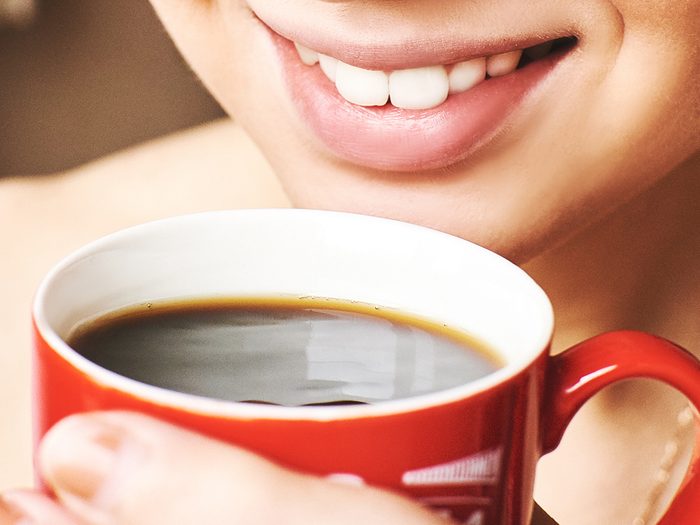
Why coffee stains teeth
Enamel, the hard outer coating that protects the outer layers of your teeth, is covered in microscopic gaps. When food and drink particles get stuck in those gaps, it forms an extrinsic stain, which just means the outer layer of your tooth is discoloured. But the longer the particles stay in the gaps, they start to affect other layers of the tooth. “The more you drink [coffee] and don’t do anything to remove it, the stain goes deeper and deeper,” says Denise Estafan, an associate professor at the New York University College of Dentistry. This is called an intrinsic stain, and it’s a lot harder to clean.
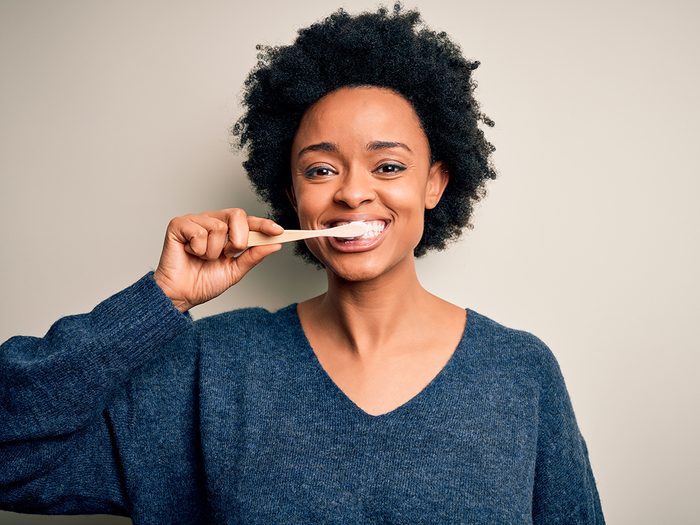
Brushing: Your first plan of attack
The primary cause of a tooth stain is plaque accumulation, so brushing your teeth with whitening toothpaste and seeing your dentist for regular cleanings are the best ways to prevent ugly coffee stains on teeth.
Find out exactly how long you should brush your teeth.
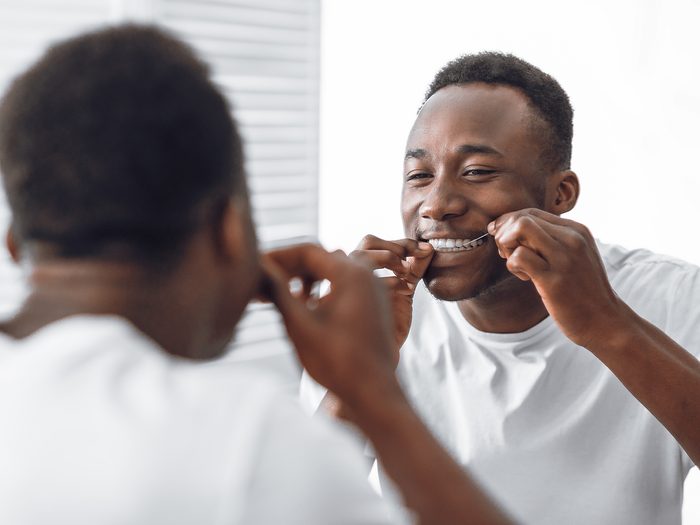
Don’t forget to floss
Let’s be honest: It’s hard to floss as regularly as dentists want you to. But setting aside a few minutes to floss every day can make a big impact on your oral health. It gets rid of plaque generally, and plaque attracts stains. Brushing alone doesn’t remove all the bacteria in your mouth. Whatever’s left over could harden and turn into tartar, which can cause infections.
Here are 10 flossing mistakes everyone makes.
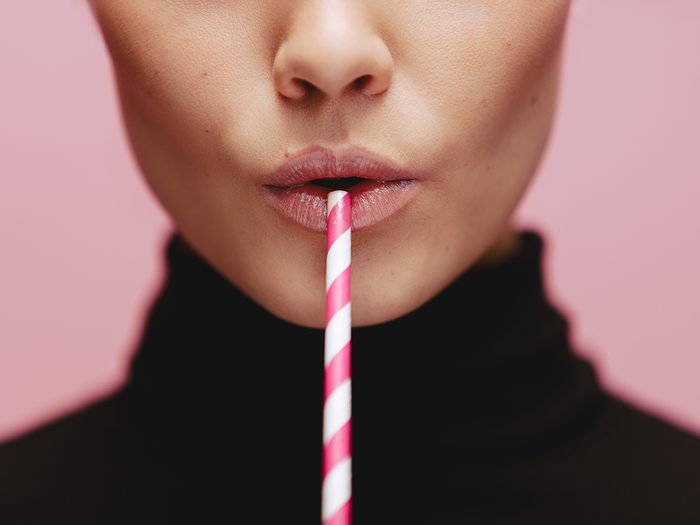
Use a straw
Less liquid touches your teeth when you drink it through a straw. And that means the coffee has less opportunity to stain your teeth. Using a straw comes more naturally to iced coffee drinkers, but it works for hot coffee too.
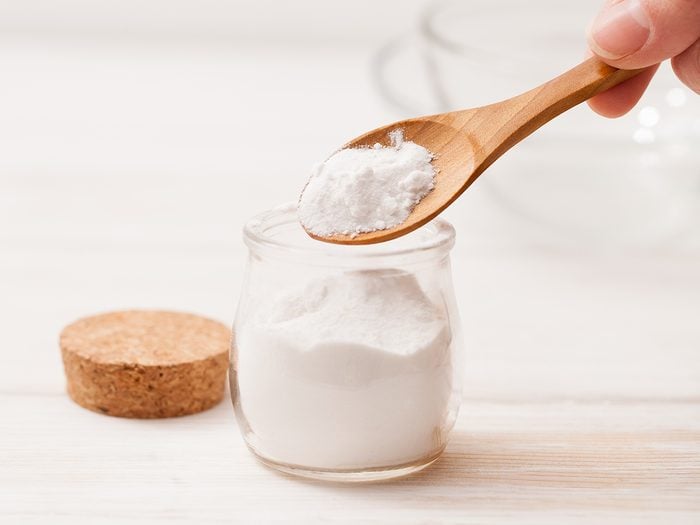
Mix baking soda and hydrogen peroxide
Make your own whitening paste by mixing a small amount of baking soda with a small amount of hydrogen peroxide. The paste should be pretty runny. If it’s too gritty, that means there’s too much baking soda, and you could scrub off your enamel. In general, though, baking powder is less abrasive than baking powder toothpaste which contains additives.
Find out more brilliant baking soda hacks.
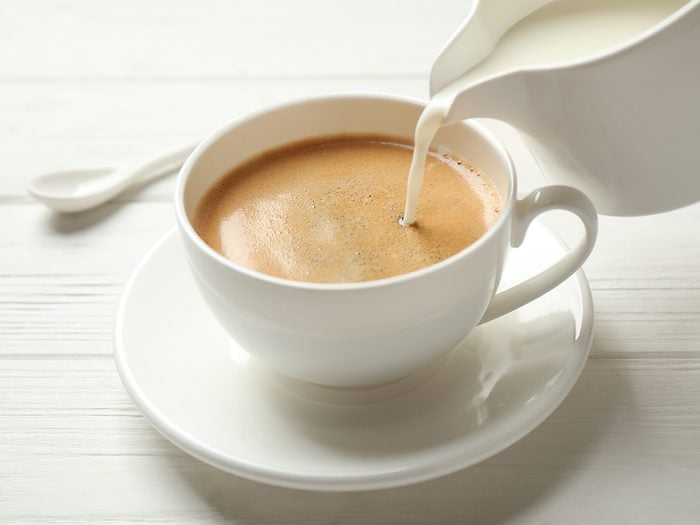
Add milk
Estafan says that a splash of milk can make a real difference for your teeth. A study published in the International Journal of Dental Hygiene found that casein, the main protein in milk, can latch onto tannins in tea (bitter-tasting particles that leave residue on teeth) and prevent staining. Coffee also has small amounts of tannins, so coffee drinkers can reap these dairy benefits too. For the best results, use animal milk; soy milk won’t do the job.
Looking for more ways to dress up your morning cup of joe? Check out 10 coffee sweeteners (that aren’t sugar).
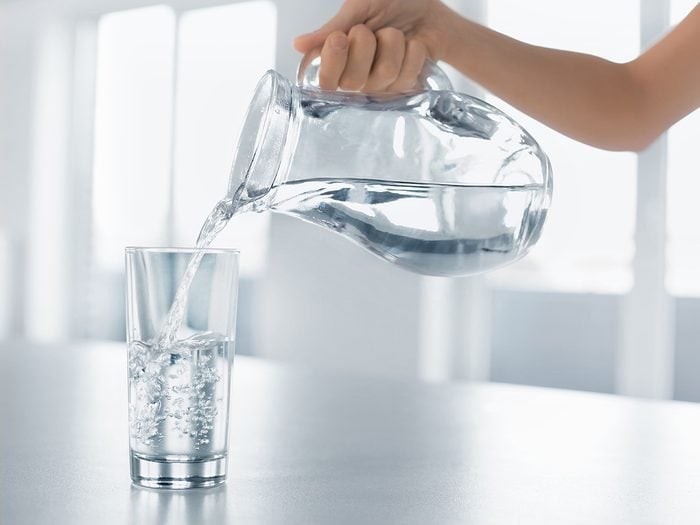
Sip water between cups of coffee
A swig of water can wash away staining liquids quickly before they start to set into your teeth. Plus, drinking enough water is a great way to help you stay hydrated throughout the day.

Drink it quickly
Let’s say you and your coworker both grab cups of coffee when you get into the office. You drink your whole cup in five minutes, but your coworker takes his time and finishes the same amount of coffee in two hours. Lucky for you, Estafan says that your teeth will be the less-stained ones. Since your coworker exposed his teeth to the coffee for a longer period of time, his will be more stained.
Did you know your teeth can reveal signs of disease?
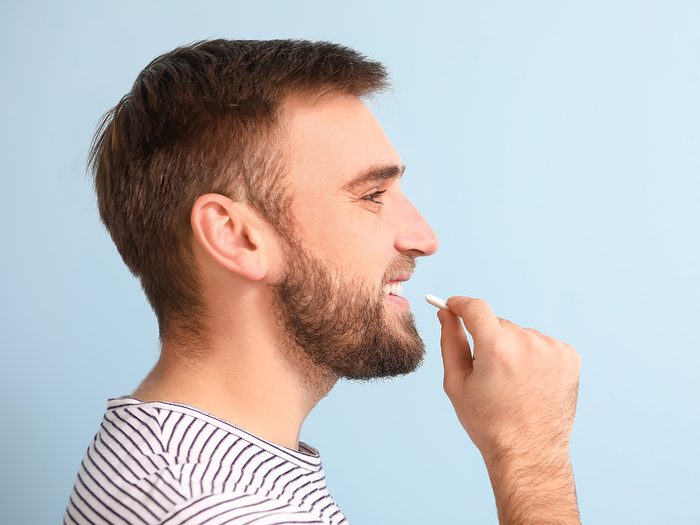
Chew sugar-free gum
Conquer coffee breath and clean your teeth at the same time. Chewing gum increases the amount of saliva in your mouth, and saliva washes away acids and plaque from your teeth. According to the American Dental Association, chewing sugarless gum for 20 minutes after eating can help prevent tooth decay.
Now that you know how to fight coffee stains on your teeth, find out what your daily dose of caffeine does to your body.